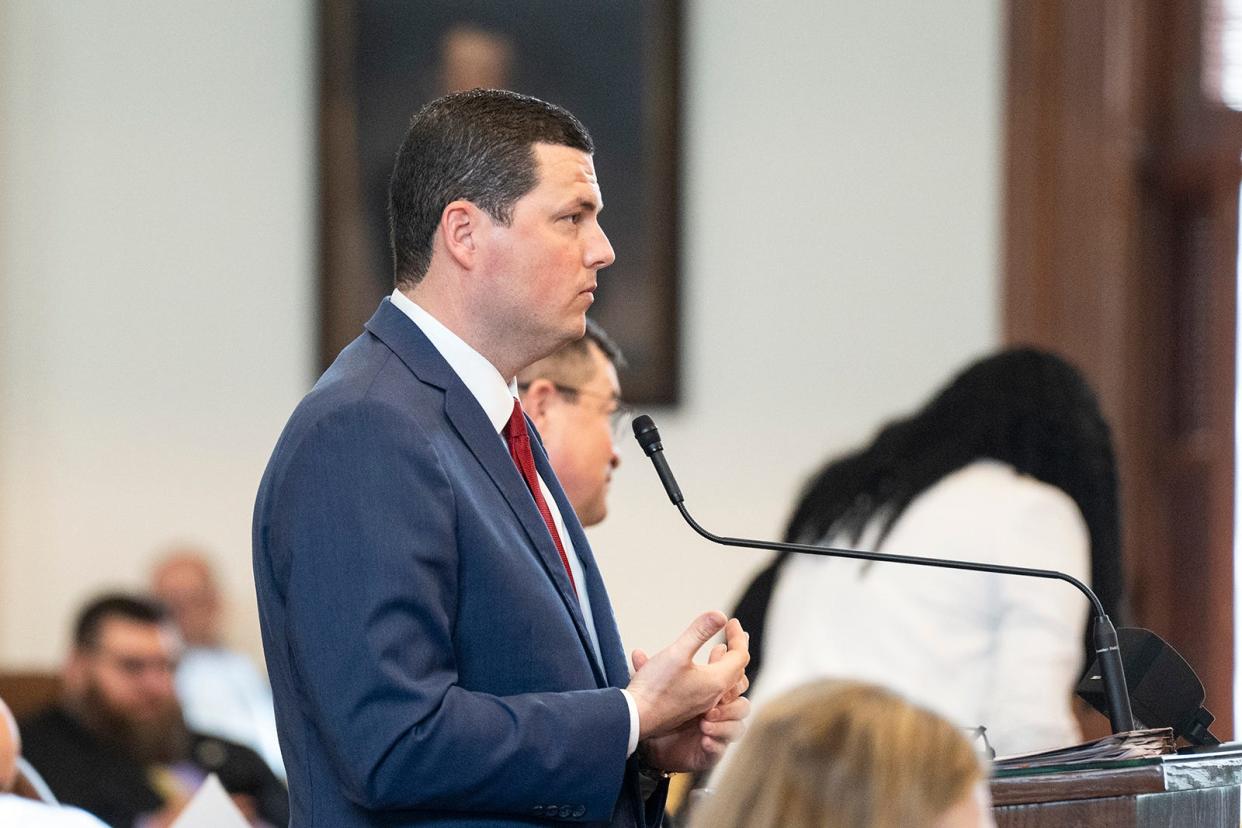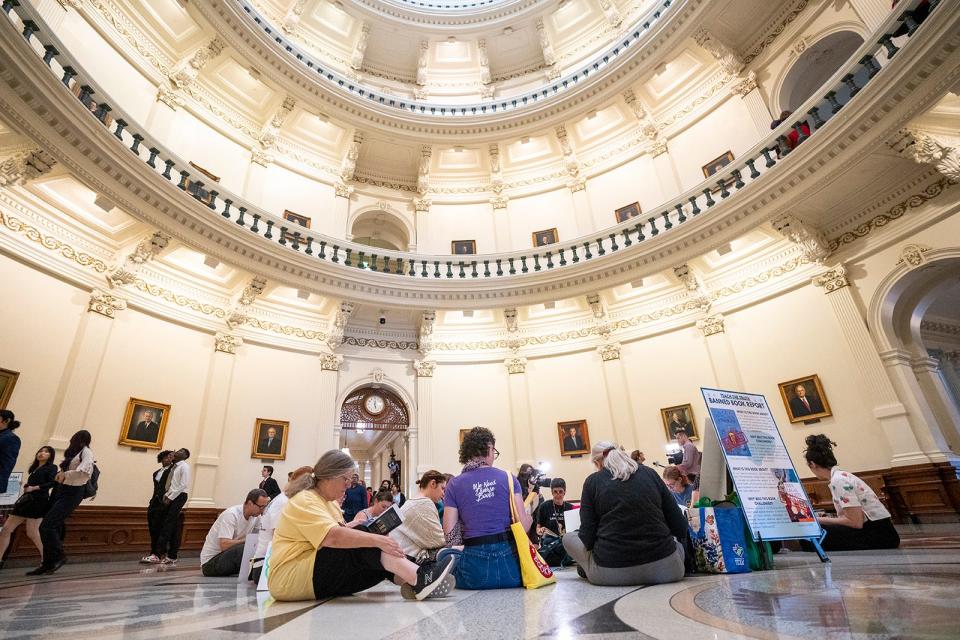Appeals court to decide on Texas school library book law

Booksellers, school librarians and state officials now await the decision of three federal appeals court judges after they heard arguments Wednesday concerning a law that attempts to ban sexually explicit materials from school libraries.
The judges' decision could affect the fate of the law, which businesses have said is costly and unreasonably vague, though state leaders insist the law is meant to protect schoolchildren.
The law — House Bill 900 — is meant to ban sexually explicit content from public school libraries by requiring booksellers to rate anything they sell to districts based on sexual content.
Under the law, sellers wouldn’t be able to sell anything deemed sexually explicit, and districts wouldn’t be allowed to buy from vendors who don’t use these ratings.
The appeals court judges could take months to make their decision. The law dictates that vendors send their ratings to the Texas Education Agency by April 1.
More: 'Extraordinarily difficult': Why a judge temporarily blocks Texas library book ban law
Since filing the lawsuit July 25, several Texas booksellers and library associations have pushed back on the law, alleging it’s overburdensome and costly to businesses.
After a U.S. district judge in September granted the booksellers’ request to temporarily halt the implementation of the law, the state appealed almost immediately to the 5th U.S. Circuit Court of Appeals in New Orleans. After Wednesday's hearing, the three-judge panel will decide whether they will let the law go into effect or if they'll declare it unconstitutional.
During the arguments, lawyers with the Texas attorney general's office argued it was too soon to discuss the effects of the law, as it hasn’t gone into effect yet.
Kateland Jackson, a state attorney, also argued against the booksellers’ claims the law tramples on companies' First Amendment free speech rights.
The vendors have argued that because the state can disagree with and edit the sellers’ ratings, the law — also called the Restricting Explicit and Adult-Designated Educational Resources, or READER, Act — compels them to speech they may not agree with.
“There is no reason to believe that the public would understand that these ratings are the speech of plaintiffs,” Jackson said of the law. “READER doesn’t require the ratings on plaintiffs' own websites, on their storefronts. They can specifically disavow any speech that they are concerned with.”
Lawyers representing the booksellers insisted that the state has told vendors the ratings will be tied to each specific business in a posting on the Texas Education Agency website.
Attorney Laura Lee Prather also said the law’s definition of "sexually explicit" is so vague that booksellers will err conservatively when excluding books to avoid getting placed on the state’s vendor blacklist.
“Classics won’t reach students,” Prather said. “Books about uncomfortable truths that young adults need to be made aware of, books about sexual abuse, about human trafficking, won’t reach these bookshelves.”
Prather repeatedly called the mandate vendors rate and review books “an impossible task.”
To expect booksellers to keep track of which books schools use, review every passage for sexually relevant materials and consider the community standards of each school district in Texas is unreasonable, she said.

In an amicus brief submitted earlier this month, HB 900 author Rep. Jared Patterson, R-Frisco, insisted the state should be allowed to move forward with rulemaking around the law while the court proceedings move forward.
“Nothing in the First Amendment prevents the state from adopting standards for its own officials to keep pornographic materials out of public schools, or from requiring that schools give parents notice of what is being provided to their children,” Patterson said.
While waiting for the court hearings to play out, there isn't much preparation for the law booksellers can do, said Charley Rejsek, CEO of BookPeople.
"It's going to be thousands of books that I have no funding to pay people to read and rate," Rejsek said. "There's really nothing I can be doing."
Rejsek worries it would be impossible to comply with the law, which would require the company to identify all the books it has ever sold to schools over 50 years of business and individually rate them based on sexual relevance, she said.
This article originally appeared on Austin American-Statesman: Appeals court to decide on Texas school library book law

